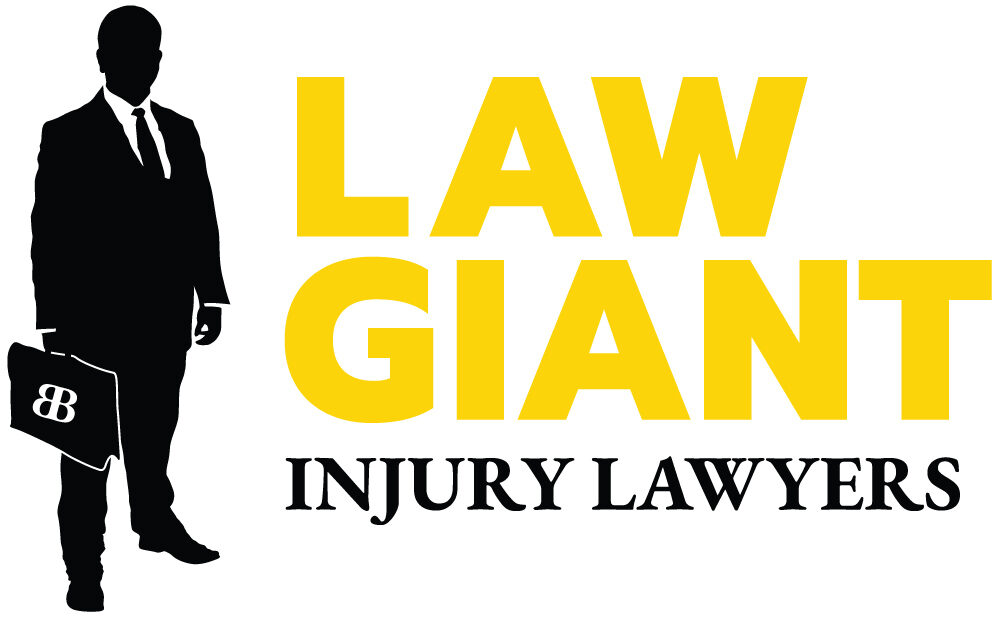
Truck accidents can be catastrophic, resulting in severe injuries and significant financial losses. The steps you take immediately afterward can significantly impact the outcome of your claim and the result you see. Essentially, to secure the compensation you deserve and will unquestionably need to recover after a collision with a commercial vehicle, you need to get things right from the beginning,
In this guide, the New Mexico Truck accident lawyers at The Law Giant Injury Lawyers will provide the essential steps to file a successful truck accident claim.
Steps to a Successful Truck Accident Injury Claim
Filing a truck accident claim in New Mexico can feel intimidating. Most people who are injured by large trucks have little to no experience with the legal system. Many victims have never filed a lawsuit or insurance claim before.
By following these steps meticulously, you can strengthen your truck accident case and maximize your chances of receiving fair and full compensation.
Step 1: Seek Immediate Medical Attention
Your health and safety are the top priority after a collision with a large truck. Immediate medical attention ensures that your injuries are documented and treated promptly.
Some injuries might not be immediately apparent, such as internal bleeding or concussion. Immediate medical evaluation can prevent these from becoming more serious. Quick medical intervention can mitigate the severity of injuries, leading to a faster recovery.
Medical records also provide official documentation of your injuries, which is critical for your claim. These records serve as evidence of the injuries caused by the accident. By getting checked immediately after the accident, you establish a clear connection between the accident and your injuries. Delays in treatment can allow insurance companies to argue that your injuries were not caused by the accident.
Step 2: Gather All Available Information
Collecting information at the truck accident scene is crucial for building a strong claim. This evidence will help establish the facts, determine liability, and support your case. The more detailed and accurate your information, the stronger your position will be when negotiating with insurance companies or presenting your case in court.
Document every detail you can, as this will help your lawyer build a compelling case on your behalf. Here are some examples of the types of information you should gather:
- Report the Crash: Contact the police and ensure an official police report is filed and obtain a copy. Official documentation by law enforcement provides a critical piece of evidence.
- Take Photos: Take pictures of the accident scene, including all vehicles involved, visible injuries, skid marks, road conditions, and property damage.
- Witness Information: Collect any witnesses’ names, addresses, and phone numbers. Ask them for statements about what they saw.
- Driver Information: Exchange names, addresses, phone numbers, insurance details, and license plate numbers with the truck driver and any other involved parties.
- Trucking Company Details: Record the name and contact information of the trucking company.
- Accident Conditions: Note the date, time, weather, and road conditions at the time of the accident.
By gathering this information, you create a robust collection of evidence that can significantly bolster your claim and improve your chances of receiving maximum compensation.
Step 3: Consult a Lawyer & Investigate
Understanding why a truck accident happened is essential to proving who is responsible. A lawyer can help you with this. They have the knowledge and resources to thoroughly investigate the collision, whether it’s driver fatigue, mechanical failure, or another issue. Consulting one of the best personal injury lawyers in Albuquerque, NM ensures that your case is handled professionally and that you receive the best possible outcome.
It’s best to work with a personal injury lawyer with deep experience and success in trucking accidents and allow them to gather essential evidence such as driver logs, maintenance records, and expert testimonies. Your attorney will then develop a strategy to prove liability and negotiate with the insurance company on your behalf, maximizing your chances of success.
Step 4: Build the Strongest Possible Truck Accident Case
Building a solid case after being hurt by a semi-truck or tractor-trailer crash involves close collaboration with your attorney to ensure every detail is accurately examined and presented.
Start by identifying and analyzing immediate causes of the accident, such as driver fatigue, mechanical failure, or weather conditions, and conduct a root cause analysis to uncover underlying issues like poor maintenance or inadequate training.
Your attorney will find applicable FMCSA regulations that the trucking company may have violated. A discovery plan will also be formulated to gather crucial documents, including driver logs and maintenance records.
Then, work with your attorney to calculate the total damages you suffered and will continue to experience due to the truck accident. This includes:
- Medical Expenses: All costs for hospital stays, surgeries, medications, rehabilitation, and ongoing treatments.
- Lost Wages: Income lost due to the inability to work while recovering from the accident.
- Property Damage: Costs for repairing or replacing your vehicle and any other damaged property.
- Pain and Suffering: Compensation for physical pain, emotional distress, and reduced quality of life.
- Future Expenses: Estimates for future medical treatments or ongoing care needs.
Regularly re-evaluate your case strategy based on new evidence or legal developments, and consider conducting mock trials to test and refine your arguments
Step 5: File Your Truck Accident Claim or Lawsuit
Once you and your attorney have built a solid case, the next step is to file your truck accident claim or lawsuit officially. Following the correct legal procedures ensures your case progresses smoothly and meets all necessary legal requirements. This typically involves drafting and submitting legal documents, adhering to court deadlines, and responding to any requests from the court or opposing parties.
Your lawyer will guide you and ensure all paperwork is correctly filed and you understand each stage of the legal proceedings. This might include filing a complaint with the court, serving legal documents to the defendants, and preparing for potential court appearances. It’s essential to stay in close contact with your lawyer, ask questions, and seek clarification to remain informed and involved in your case.
Step 6: Settlement Negotiations/Prepare for Court
Negotiating a settlement is the next phase of the truck accident claim process, as it can often lead to a fair outcome without a lengthy court battle. During this stage, your attorney will communicate with the insurance company and the truck company’s legal team to reach an agreement that adequately compensates you for your damages.
Effective negotiation requires a well-prepared case, clear evidence of liability, and a thorough understanding of your losses. Your attorney will leverage all gathered evidence, including medical records, witness statements, and expert testimonies, to argue for maximum compensation.
Preparing for litigation becomes necessary if a fair settlement cannot be reached. This involves going to court to seek justice. Your attorney will continue to develop and refine your case, presenting all evidence to demonstrate the truck company’s liability and the accident’s full impact on your life. This stage may include depositions, discovery, and trial preparation, ensuring you are fully equipped to present a strong case before a judge or jury. The goal is to secure a favorable verdict that provides the compensation needed for your recovery.
Step 7: Stay Involved & Communicate with Your Lawyer
Staying actively involved in your case and maintaining open communication with your lawyer is a big part of seeing a successful outcome. Regular updates and discussions with your lawyer will ensure that you are informed about the progress of your case and any new developments. This ongoing communication allows you to provide additional information and helps your lawyer adjust strategies to respond to new evidence or legal changes.
Being proactive in your truck accident case can also reduce anxiety and give you a sense of control over the legal process. By staying engaged and working closely with your lawyer, you can contribute to the strength of your case and help achieve the best possible result.
Step 8: Obstacles to Avoid in a Truck Accident Claim
Filing a truck accident claim in New Mexico can be challenging, and large companies may work against you. The truck company might try to blame you for the accident, or critical evidence could go missing, making it harder to prove your case. Additionally, insurance companies may resist paying the full amount you deserve. These hurdles can complicate the process and potentially reduce your odds of receiving fair compensation.
A skilled lawyer plays a crucial role in overcoming these obstacles. They work to secure the maximum for your injuries and damages. Moreover, a lawyer helps hold the truck company accountable, seeking justice for you and contributing to safer road practices by pushing for stricter regulations.
Need Help after a NM Truck Crash? Get the Law Giant
Getting the best possible result after being seriously injured in a NM truck collision can mean a lot of things based on the situation. You may need adequate compensation to heal and get back to your life. Or you may want to see those at fault held accountable and ensure safer roads for everyone. The Law Giant is here to guide you through every step, providing advice and support to help you navigate your claim successfully.
With over $1 Billion recovered in cases like yours, Our New Mexico personal injury lawyers know how to win in truck accident cases. Let us explain the law, your options, and how we can help. Call (505) 900-0000 for a free case evaluation. There’s no cost unless you win.

